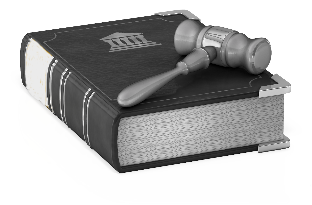
General Policies
Calendars and Oral Arguments
The Court normally sets its cases on calendars for consideration by panels of the Court on Tuesdays, Wednesdays, and Thursdays. The Court normally posts its monthly calendar at least 30 days before the first day of the month at issue. For example, the Court would post its June calendar before the end of April. The monthly calendar shows oral arguments and lists which cases the court will consider in conference each week. (The very latest, most current, information about the progress of a case may be found by checking the case's docket.)
A party wishing oral argument in a case must file a timely motion for oral argument pursuant to ARCAP 18. The Court will email a notice of oral argument at least 20 days before the date of the argument. When oral argument is granted, each side usually is allowed 20 minutes for argument, except in Rule 29 (accelerated) civil cases, in which each side is allowed 30 minutes. Time is allocated per side. When there are multiple parties on a side, they must divide among themselves the time allotted.
Motions to continue oral argument from the scheduled date and time generally are granted only for true emergencies or unavoidable schedule conflicts. Scheduling conflicts with discovery matters or superior court proceedings ordinarily are not sufficient. Stipulations to continue oral arguments generally will not be accepted unless accompanied by a showing of sufficient cause. Motions for continuance should be filed as motions for a procedural order. See ARCAP 6(b). Any such motion should state the position of the opposing party regarding the request for continuance.
Before oral argument, the panel of judges already will have read the briefs and conferred about the case. In almost all cases, the panel also will have reviewed a bench memorandum or a proposed draft decision. Accordingly, advocates should not spend their oral argument time repeating the facts of the case, and instead should proceed to directly address the questions presented.
The Court makes unofficial digital audio and video recordings of each oral argument, which it maintains until the case to which it relates has been mandated or otherwise closed. These recordings do not constitute official records of the proceedings. Audio and video records may be accessed here. The Court also livestreams oral argument so that members of the public may view the argument as it occurs. The livestream links for each courtroom may be found here.
Accelerated Appeals
Accelerated disposition of a civil appeal may be obtained by stipulation or motion pursuant to ARCAP 29. Under Rule 29, the briefs filed in an accelerated appeal may be shorter and the case is afforded priority in consideration and disposition. The current version of Rule 29 allows the parties to petition for review to the Arizona Supreme Court from a decision issued pursuant to the rule.
Motions for Reconsideration
By rule, a response to a motion for reconsideration is not to be filed unless the Court orders a response. ARCAP 22(d). A motion for reconsideration that merely re-urges the arguments made in the briefs or that raises a new issue is very unlikely to succeed. The Court will not grant a motion for reconsideration without first requesting a response.
Requests for Publication
When the Court receives a request for publication of a memorandum decision as an opinion, it treats that request as a motion for reconsideration. Such a request may be captioned as a motion for reconsideration. Pursuant to ARCAP 22, such a request or motion must be filed within 15 days of the Court’s decision.
Post-Conference Status Inquiry
After a case has been taken under advisement, a party/attorney may contact the Court to inquire about its status. All inquiries must be directed to the Clerk of the Court. If appropriate, the Clerk's Office will confirm whether the case is pending and being decided in the normal course of business. The judges on the panel will be advised that an inquiry has been received, but will not be informed who has inquired.
Notice Concerning Disclosure of Briefs
Parties should be aware that, except for briefs in juvenile cases and mental health cases, most briefs filed with the Court are sent to Thomson-Reuters for scanning and inclusion in its Westlaw online Arizona brief bank service. In addition, any member of the public may read such briefs in the office of the Clerk of Court. In light of the public nature of these briefs, parties should avoid using the full name of a child in a family-court matter or any crime victim in any brief filed with the Court. In any case in which counsel or a party prefer that a brief not be included in the brief bank service, they must contact:
Thomson-Reuters Briefs Team
651-687-4994 or
[email protected]